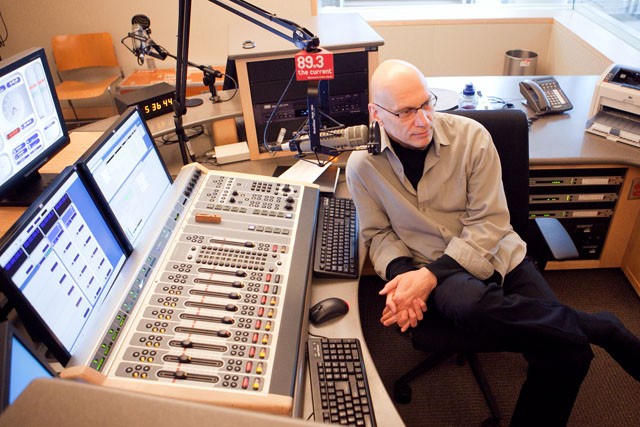Whether itâÄôs watching Antiques Road Show on a Monday night or turning the dial to 89.3, 170 million Americans tune in to public broadcasting every month.
But that programming may change as Congress attempts to reduce the nationâÄôs $1.6 trillion annual deficit.
The U.S. House has approved a bill that would include eliminating all federal funding for national public radio and television âÄìâÄì and would mean Minnesota Public Radio and Twin Cities Public Television would lose about $4 million and $2 million a year, respectively.
The $430 million cut to public broadcasting was part of a bill that would trim $60 billion from the nationâÄôs annual deficit. The bill would decrease wasteful spending and create jobs, House Speaker John Boehner, R-Ohio, said in a press conference last week.
âÄúWe need to stop WashingtonâÄôs spending binge,âÄù Boehner said. âÄúThe legacy of the stimulus spending binge is clear âÄìâÄì it failed. And Americans are still asking the same question: âÄòWhere are the jobs?âÄôâÄù
While the country needs to confront its deficit, eliminating funding to public broadcasting âÄî which makes up .001 percent of the federal budget âÄìâÄì is not the way to do it, said Jeff Nelson, managing director of public strategies at MPR.
Both MPR and TPT said the cuts would be a hard hit, but smaller stations around the country would suffer the most.
If some stations fold, the ones that remain will bear the brunt of the financial burden, TPT President and CEO Jim Pagliarini said.
âÄúI guarantee you that if funding is eliminated, it will send off a ripple effect across the country,âÄù he said. âÄúThe whole economy of the system would be thrown off.âÄù
Mark Wheat was the first DJ hired at 89.3 The Current. Now on his sixth year playing local music for MPR listeners, he experienced a record-breaking member drive, which he attributes partly to the discussion about possible funding cuts.
The Current had more than 17,100 new and renewing members in one week, Wheat said. âÄúIt was a great response because the news about the cuts hadnâÄôt been out for that long.âÄù
Those members gave a little more than $1.7 million in total âÄî not enough to make up for a loss of federal funding.
Many listeners who stepped up during this member drive were young former students, Wheat said.
Chelsey Sleznikow, a University of Minnesota sophomore, is not only an avid listener of MPR but also a sustaining member.
âÄúI feel like a lot of people donâÄôt realize how much they benefit from it,âÄù Sleznikow, whoâÄôs majoring in global studies, said. âÄúPeople also need to realize that itâÄôs obviously not a totally free service.âÄù
For MPR and TPT, the goal is to keep the federal funding by encouraging listeners to contact their U.S. representatives.
âÄúWeâÄôre really trying to focus on getting the 170 million people that tune in every month to get engaged and call Congress, and hopefully thatâÄôs going to help change whatâÄôs happening in Washington,âÄù Nelson said.
For Wheat and other MPR employees, itâÄôs too soon to be thinking of what would get the boot if funding were to disappear.
âÄúItâÄôs like if thereâÄôs a hurricane coming,âÄù The Current DJ Mary Lucia said. âÄúWe donâÄôt know when itâÄôs coming or where itâÄôs coming from, but if we knew we were in its path, weâÄôd be sandbagging.âÄù
Federal cuts threaten public radio and television budgets
Congress may pull $430 million from public broadcasting to tackle the nation’s deficit.

Radio announcer Mark Wheat for the current sits in his office Tuesday afternoon in the MPR building in St. Paul.
by Ashley Aram
Published February 24, 2011
0
More to Discover







